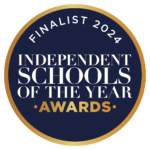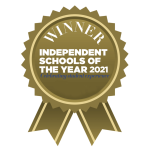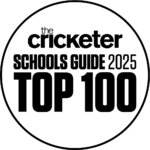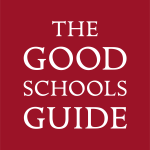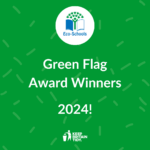Ethos (/ˈiːθɒs/ or US: /ˈiːθoʊs/) is a Greek word meaning “character” that is used to describe the guiding beliefs or ideals that characterize a community, nation, or ideology.
‘Showing strong moral character’ is what we want to enable our pupils to do. We provide all pupils in Years 6 to 7 with dedicated weekly Ethos lessons, which provide:
- an introduction to ethical and critical thinking;
- an education in how politics works;
- opportunities for informed discussion;
- training in the skills of debating.
We aspire to develop independence and resilience in our younger pupils, and to enhance their capacity to formulate opinions and ideas cogently. Some of the questions pupils have enjoyed exploring include:
- If you had a box with a button on it that, when pressed, meant that someone somewhere in the world would experience serious pain, but no-one would ever know it was you, would you press it?
- Do animals have rights?
- Does the education system ruin childhood?
- Should all the money in the world be redistributed equally each year?
- Should prisons punish or rehabilitate?
- What can we do to end racial inequality?
Here’s what pupils have to say about their Ethos lessons:
“Ethos is one of the new subjects which has been introduced recently. However, it has become one of my favourite subjects easily. In Ethos, we learn about debating, decision making, people’s beliefs about how we see the world, politics, and people’s opinions on different matters.” (Manasseh)
“Ethos is a great way of expressing yourself to others.” (Sarah)
“A chance to learn about the world.” (Thomas)
“Ethos is about learning how to face a problem and solve it ethically.” (Jessica)
“A useful and engaging topic that requires thinking and being able to speak openly without being biased.” (Miles)
“I would describe it as a way to express your feelings and learn how to be a better person.” (Max Kemp)
“I would say that it teaches you all about making the right decision, and not always letting what you think is right take over.” (Ava)
This strong foundation is built upon in the Middle School with a programme of Ethos assemblies in which staff and pupils share their interests and passions. From the origins of feminism to sixteenth-century Netherlandish art and the beauty of soil, we share and celebrate the range of expertise within our community, and provide opportunities for pupils to practise their own public speaking skills, too.
In the Sixth Form, we continue to focus on developing character with a core reading list for students containing seminal texts of philosophical and cultural importance which are then discussed by staff and students in the weekly Life Education sessions. Texts have included The Consolations of Philosophy by Alain De Botton, and I Know Why the Caged Bird Sings by Maya Angelou.


